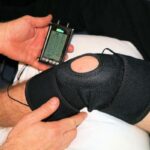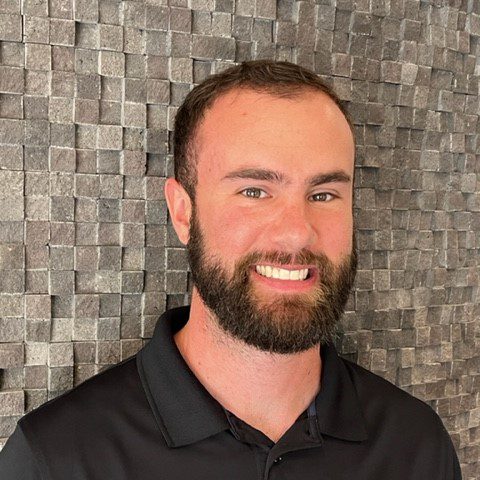Did you recently suffer an injury while playing sports? Or are you hoping to relieve chronic pain due to physical trauma? It’s important to know whether you need to consult with a sports medicine doctor or an orthopedic doctor. Both are experts when it comes to the treatment of musculoskeletal issues, but each one has different specialties. Let’s take a look at what makes them different.
The Difference Between a Sports Medicine Doctor and an Orthopedic Doctor
Sports medicine doctors typically work with sports teams and individual athletes. Meanwhile, patients from all walks of life may seek the care of orthopedic doctors. These patients can also be full-time elite athletes, fitness enthusiasts, or seniors who don’t engage in any sports at all. Regardless of how the injuries occurred, orthopedic doctors can focus on treating joint problems, musculoskeletal conditions, injuries, and even cognitive disorders.
What Does a Sports Medicine Doctor Do?
The majority of a sports physician’s training takes place in the gym or on the field. Orthopedic doctors, on the other hand, receive training in the operating theatre, urgent care centers, and healthcare facilities.
Even non-professional athletes can seek treatment from sports physicians. Are you planning to start an exercise routine or consider a new sport? A sports physician can help you if you have sustained an injury, are suffering from chronic pain, or simply want to improve your quality of life.
Sports physicians are also trained in aspects of health and wellness. Here are a few examples or other conditions they can treat:
- Concussions
- Asthma caused by exercise
- Overtraining and exhaustion
- Dietary issues
- Physical conditioning and training
The Responsibilities of Sports Physicians
Medical care and treatment of athletes’ injuries is the specialty of sports physicians. Others work for hospitals, sports teams, and fitness centers, while others work in clinics. Doctors who work with sports teams often travel with them.
A sports physician’s duties include the following:
- Assessing the health of a patient
- Diagnosis and treatment of injury
- Medication prescriptions
- Keeping track of medical records
When Do You Need to See a Sports Physician?
You Have an Acute Sports Injury
Acute sports injuries occur unexpectedly while participating in athletics or getting exercise. Sprains and strains are the most common. Muscle and knee injuries, torn ligaments, dislocated joints, and Achilles tendon injuries are among the more serious ones. The Achilles tendon connects the back of your calf muscle to your heel bone and is located behind your ankle.
The following are some of the signs and symptoms of an acute injury:
- Pain that comes on suddenly
- Swelling
- Loss of mobility
- A bone or joint that appears to be misaligned
You Have a Chronic Sports Injury
These are long-term injuries that occur over time. They are frequently the result of having trained too hard or for too long. An injury to your rotator cuff (a group of muscles and tendons in your shoulder) and a swollen tendon (tendinitis) are classic examples.
The following are some of the signs and symptoms of these injuries:
- Pain when playing or exercising
- Swelling that worsens after stopping activity
- Consistent pain or aching while at rest
You’re Recovering From a Sports Injury
Have you had a recent sports injury or surgery? A sports physician can assist you in recovering from your injury and returning to your normal activities. The process of recovery should begin as early as possible. However, going back to your sport or getting exercise too soon may result in trauma.
A sports physician can create a recovery plan for you and may be able to assist you with:
- Anti-inflammatories and pain relievers
- Stabilizing the area with splints or supports
- Rehabilitative treatments
- Exercising your range of motion
You Want To Prevent a Sports Injury
Seeing a sports physician to avoid a sports injury is smart. If you’re starting a new sport, physical activity, or exercise, think about it. The following may be done in your visit:
- A physical examination
- A fitness and conditioning program
- Safety and equipment recommendations for training
- Advice on optimal nutrition
What is the Role of an Orthopedic Doctor?
Many services by sports physicians can also be provided by orthopedic doctors. However, orthopedic specialists can provide care that sports physicians may not be trained or qualified to provide. These frequently include:
- Orthopedic surgery
- Fracture repair
- Joint tissue reconstruction
- Spinal surgery
- Sensitive, advanced spinal injections
Where Do They Get Their Training?
Orthopedic doctors receive their medical education in a more traditional manner. They typically spend more than a decade accumulating the formal training required. This includes their basic medical apprenticeship and their medical residency. After that, they must take and pass the required certification exams in order to practice orthopedic medicine.
What Medical Conditions Do Orthopedic Doctors Treat?
Orthopedic doctors specialize in treating patients with issues in their muscle groups, ligaments and tendons, bones, and cartilage. The role of an orthopedic doctor includes surgery. They can carry out procedures like:
- Replacement of a joint
- Correction of bone deformities
- Internal fixation of the bones
- Repairing soft tissue
- Fusion of the bones
When Is It Time to See an Orthopedic Doctor?
You Suffer From Daily Physical Discomforts
Bone and joint pains are common among the elderly, but they should not prevent you from going about your normal tasks. You should see an orthopedic doctor if you have trouble doing simple tasks like walking up stairs or strolling at the park.
You Have Chronic Pain
Any pain that lasts longer than three months is commonly referred to as chronic pain. It’s one thing to have a few days of discomfort. If you’ve been suffering from pain that has lasted for several months, it’s a good idea to seek professional assistance and get the right treatment.
You Feel a Restricted Range of Motion
Are your joints becoming increasingly tense with each passing day? Joint disease, such as arthritis, can cause you to feel a limited range of motion. To avoid your condition from worsening, you must see an orthopedic specialist as soon as possible.
You’re Suffering From Motion Instability
Do you find yourself shaky or wobbly when performing simple tasks like standing, walking, or standing up? Motion instability is a clear indication that you might have a joint problem. The best thing you can do is see an orthopedic doctor to figure out what’s causing your instability and then work on fixing it.
You’ve Sustained a Soft-Tissue Injury
Have you recently sustained a soft tissue damage, such as a dislocated shoulder or twisted knee? Within two days, the pain and swelling should be gone. However, if the pain and discomfort haven’t subsided after the first 48 hours, it’s best to contact a doctor and request an appointment as soon as possible.
Get the Comprehensive Care That You Need
Do you have chronic pain or injury that requires medical attention? Our experts can assist you! We have pain management protocols that are both effective and responsible, as well as personalized, comprehensive treatment plans. We are here to help you live a better quality of life, free of pain and discomfort. You can rely on us to resolve your healthcare issues. Make an appointment with B3 Medical: Wesley Chapel to speak with one of our specialists.



























